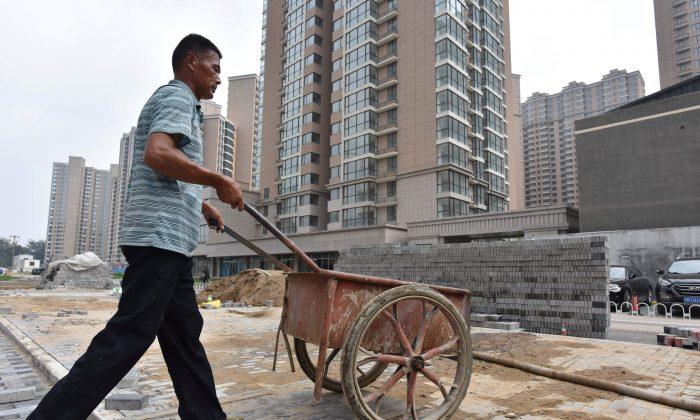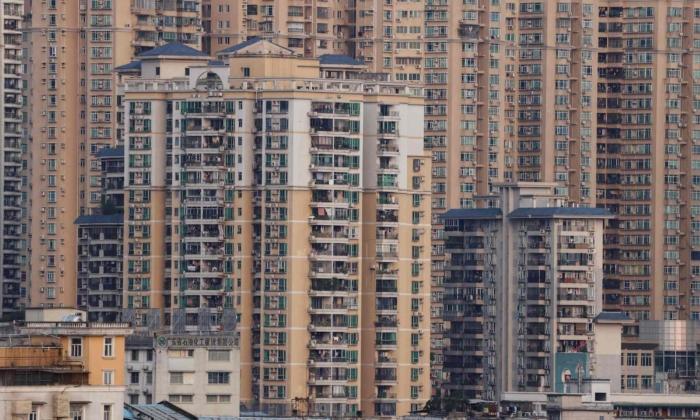By some measures, China is making progress in its effort to deleverage and clean up bank balance sheets.
According to data from Bloomberg, China’s total balance of non-performing loans (NPLs) reached 1.96 trillion yuan ($285 billion) at the end of June 2018. To help lower this figure, China has been pawning off toxic loans onto foreign investors and unsuspecting pensioners.
Oaktree Capital Management in September acquired 115 NPLs for 2.4 billion yuan ($350 million) from one of China’s “bad banks” China Huarong Asset Management Co., according to Bloomberg.
The Los Angeles-based Oaktree is one of the world’s biggest distressed-debt investors. Oaktree CEO Jay Wintrob earlier this year said his firm is allocating more capital to acquire assets in Asia due to unattractively high valuation in the U.S. debt market.
The loans Oaktree acquired were all from China’s relatively wealthy eastern province of Jiangsu. As China’s second-richest province (measured by GDP), Jiangsu’s NPLs will likely possess relatively higher chances of recovery.
Toxic Asset Clearinghouse
China Huarong is one of the country’s four big state-owned asset management companies (AMCs), commonly referred to as “bad banks.”Former premier Zhu Rongji originally established the AMCs in 1999—one for each of its large commercial banks at the time—to buy NPLs of China’s state-owned companies from banks. The AMCs were China Orient Asset Management, Great Wall Asset Management, China Cinda Asset Management, and China Huarong Asset Management.
The AMCs purchased loans from banks, freeing up capital for banks to extend more loans to companies. They were given 10-year loans to finance the asset purchases, which were mostly done at par (full) value, despite the low quality of such loans, in an effort to prop up bank earnings. The AMCs were supposed to go away after winding down the NPLs in 10 years. But today, the AMCs are not only still around, but they’re getting larger and have become full-service financial-service organizations.
Over the ensuing decades, Beijing used AMCs such as China Huarong to clean up bank balance sheets and shift NPL exposure away from banks—this is how China’s biggest banks could claim sub-2 percent NPL ratios for years. Initially, the AMCs bought up soured loans given to national state-owned enterprises, and more recently they bought loans given to local governments, regional banks, and insurers.
A new form of toxic asset will soon make its way to the AMCs. Last month, China’s financial regulators ordered the AMCs to take over struggling online peer-to-peer lending platforms.
The peer-to-peer lending crisis is China’s latest financial blowup. Over the summer, Beijing announced strict guidelines online lenders must follow to remain in business, causing investor panic and failure of hundreds of low-quality peer-to-peer lenders. Facing increasing social unrest from investors who lost their savings investing in such products, Beijing is depending on the AMCs to extend their balance sheets and rescue such lenders.
“The state AMCs are the only ones that can help with this difficult situation,” Nanjing University Business School Professor Sun Wujun told the South China Morning Post recently.
In a test transaction, China Orient—one of the AMCs—recently agreed to take on $2.9 million of NPLs from peer-to-peer lending platform CreditFinance. The small transaction serves as a first step to realizing Beijing’s directive to clean up the peer-to-peer sector.
Passing the Buck
Today, the AMCs themselves have become bloated with distressed assets. To free up capital to buy up more toxic loans, they sell assets to third-parties or raise fresh capital from strategic investors.That’s where foreign investment firms such as Lone Star Capital, Bain Capital, and Oaktree come in. With proper risk management, careful selection of loans, and disciplined valuation, distressed-debt investing can generate good returns.
But in today’s low-yield setting, due diligence efforts have become lax and investors often find themselves in bidding wars, driving up NPL prices to unreasonable levels. The Chinese NPL market resembles the unfavorable investing environment best described by Oaktree co-founder Howard Marks as “too much money chasing too few deals.”
Even executives at AMCs—who are selling such loans—have become concerned. China Huarong was surprised by the number of smaller and inexperienced investment managers dipping into the “Wild West” of NPLs over the past two years.
Lai Xiaomin, the former CEO of China Huarong, told the Financial Times last year that “a bubble in the price of bad assets” was forming due to outside investors driving up prices of NPLs at auction.
In the end, that’s not a true concern of the AMCs. Their goal is to raise new equity and expand their balance sheets.
So far, China Huarong and China Cinda are the only two of the big four AMCs to IPO in Hong Kong. While both Great Wall and China Orient are planning to list their shares publicly, they have been more active in capital raising from strategic investors.
Great Wall announced a capital injection of 12 billion yuan ($1.8 billion) in July from four investors, including the National Social Security Fund, China’s national pension. Earlier in the year, China Orient raised 18 billion yuan ($2.6 billion) from a group of investors that includes China Telecom and the National Council for Social Security Fund, according to information gathered by the Hong Kong-based China Money Network.
Strategic capital from the national pension funds is an innovative, albeit worrisome, way for AMCs to raise funds. If the NPLs eventually perform, they can prove lucrative for yield-starved pension funds supporting a massive retired workforce.
But what if China’s economy continues to slow down and the NPLs don’t recover?
It’s a risky proposition to align the interests of the pension fund, which directly impacts the financial future of retirees, to Beijing bureaucrats tasked with cleaning up the banking system.
Imagine a situation where the pension fund’s returns falter and the fund has trouble meeting its liability payments in the future. The social unrest facing Beijing and the ruling Communist Party could become insurmountable.





